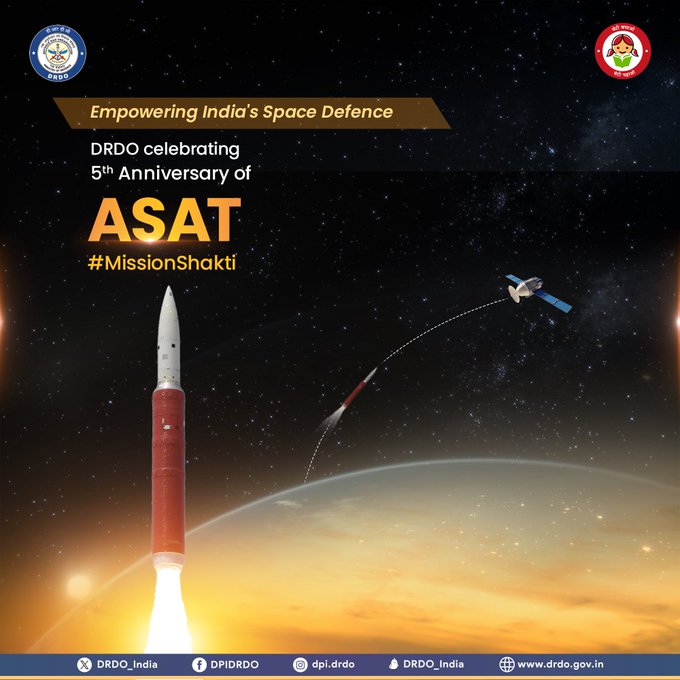- Views: 2K
- Replies: 10

On this day five years ago, India made history with the successful execution of Mission Shakti, an anti-satellite (ASAT) missile test. This landmark event positioned India within an exclusive group of nations possessing this complex military technology.
The Technological Triumph
On March 27th, 2019, India conducted Mission Shakti, demonstrating its capability to target and destroy satellites in Low Earth Orbit.A specially designed missile, launched from Dr. APJ Abdul Kalam Island, accurately intercepted a pre-selected Indian satellite located approximately 350 kilometers above the Earth's surface.
This moving target was traveling at an incredible speed of 24,000 kilometers per hour, showcasing the precision and sophistication of India's missile technology and targeting systems.
India's Entry into an Exclusive Club
With the success of Mission Shakti, India joined the ranks of the United States, Russia, and China as the only nations possessing verified ASAT capabilities. This technological leap elevated India's stature as a major space and defence power.The development of ASAT systems reflects a country's advanced aerospace engineering expertise, guided missile technology, and a commitment to developing a robust national defense strategy.
Strategic Implications and Space Security
ASAT capabilities hold immense strategic value in modern warfare. Satellites are essential to military operations, responsible for communication, navigation, surveillance, and intelligence-gathering.By demonstrating ASAT proficiency, India established a credible deterrent against adversaries who might seek to exploit space-based assets for aggressive actions. The ability to disrupt an enemy's space-based infrastructure creates a strategic advantage that cannot be ignored.
However, Mission Shakti also brought international focus to the problem of space debris. The destruction of orbiting satellites generates fragments that, if left unchecked, can pose risks to operational spacecraft and astronauts.
Acknowledging this concern, India has maintained a commitment to the peaceful and responsible exploration of space, advocating for treaties and policies that mitigate the risk of debris proliferation and ensure the long-term sustainability of space-based operations.
Conclusion
Mission Shakti stands as a watershed moment for India's defense and space programs.It highlights the nation's unwavering drive for technological self-reliance and its evolving strategic posture in response to a dynamic geopolitical landscape.
As India celebrates the fifth anniversary of this achievement, it remains committed to fostering a safe and secure space environment while strengthening its defense preparedness for future challenges.




